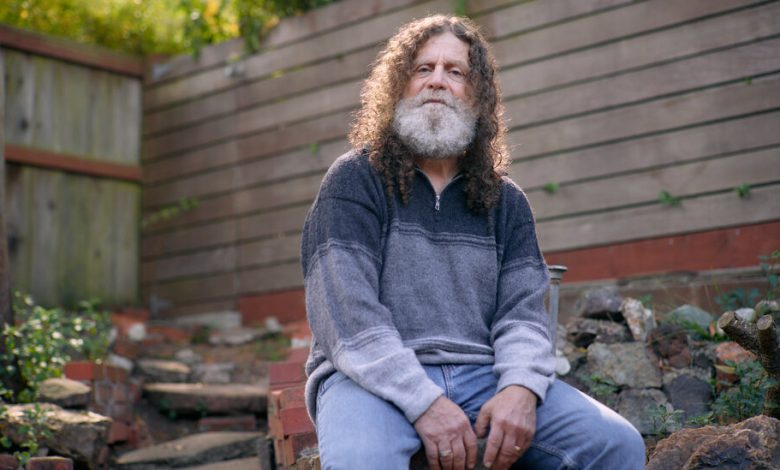Robert Sapolsky Doesn’t Believe in Free Will. (But Feel Free to Disagree.)

There is no free will, according to Robert Sapolsky, a biologist and neurologist at Stanford University and a recipient of the MacArthur Foundation “genius” grant. Dr. Sapolsky worked for decades as a field primatologist before turning to neuroscience, and he has spent his career investigating behavior across the animal kingdom and writing about it in books including “Behave: The Biology of Humans at Our Best and Worst” and “Monkeyluv, and Other Essays on Our Lives as Animals.”
In his latest book, “Determined: A Science of Life Without Free Will,” Dr. Sapolsky confronts and refutes the biological and philosophical arguments for free will. He contends that we are not free agents, but that biology, hormones, childhood and life circumstances coalesce to produce actions that we merely feel were ours to choose.
It’s a provocative claim, he concedes, but he would be content if readers simply began to question the belief, which is embedded in our cultural conversation. Getting rid of free will “completely strikes at our sense of identity and autonomy and where we get meaning from,” Dr. Sapolsky said, and this makes the idea particularly hard to shake.
There are major implications, he notes: Absent free will, no one should be held responsible for their behavior, good or bad. Dr. Sapolsky sees this as “liberating” for most people, for whom “life has been about being blamed and punished and deprived and ignored for things they have no control over.”
He spoke in a series of interviews about the challenges that free will presents and how he stays motivated without it. These conversations were edited and condensed for clarity
To most people, free will means being in charge of our actions. What’s wrong with that outlook?
It’s a completely useless definition. When most people think they’re discerning free will, what they mean is somebody intended to do what they did: Something has just happened; somebody pulled the trigger. They understood the consequences and knew that alternative behaviors were available.
But that doesn’t remotely begin to touch it, because you’ve got to ask: Where did that intent come from? That’s what happened a minute before, in the years before, and everything in between.
For that sort of free will to exist, it would have to function on a biological level completely independently of the history of that organism. You would be able to identify the neurons that caused a particular behavior, and it wouldn’t matter what any other neuron in the brain was doing, what the environment was, what the person’s hormone levels were, what culture they were brought up in. Show me that those neurons would do the exact same thing with all these other things changed, and you’ve proven free will to me.
So, whether I wore a red or blue shirt today — are you saying I didn’t really choose that?
Absolutely. It can play out in the seconds before. Studies show that if you’re sitting in a room with a terrible smell, people become more socially conservative. Some of that has to do with genetics: What’s the makeup of their olfactory receptors? With childhood: What conditioning did they have to particular smells? All of that affects the outcome.
What about something bigger, like choosing where to go to college?
You ask, “Why did you pick this one?” And the person says, “I’ve learned that I do better in smaller classes.” Or, “They have an amazing party scene.” At any meaningful juncture, we’re making decisions based on our tastes and predilections and values and character. And you have to ask: Where did they come from?
Neuroscience is getting really good at two levels of stuff. One is understanding what a particular part of the brain does, based on techniques like neuroimaging and transcranial magnetic stimulation.
The other is at the level of tiny, reductive stuff: This variant of this gene interacts with this enzyme differently. So, we kind of understand what happens in one neuron. But how do 30 billion of them collectively make this a human cortex instead of a primate cortex? How do you scale up from understanding little component parts and getting some sense of the big, emergent thing?
Say we figured that out. Have X happen 4,000 times per second in Y part of the brain, countered — as an opposing, inhibitory thing — 2,123 times a second when the hormone levels are doing such-and-such. How does this big thing called a “behavior” or a “personality” or a “thought” or a “mistake” pop out at the macro level? We’re beginning to understand how you get from one level to the other, but it’s unbelievably difficult.
If we’re not responsible for our actions, can we take ownership of them?
Well, we can take ownership in a purely mechanical sense. My molecules knocked into the molecules making up that vase of flowers and knocked it over and broke it — that’s true. And we can keep ourselves going with myths of agency when it really doesn’t make a difference. If you want to believe that you freely chose to floss your upper teeth before your bottom teeth today, that’s a benign myth to operate with.
But you’re saying that the myth isn’t always benign?
Fundamentally injurious things about our universe run on the notion that people get stuff that they didn’t earn or they didn’t deserve, and a huge amount of humanity’s misery is due to myths of free will.
Most of the time, I get by without having to pay any attention whatsoever to how I think things work. Recognize how hard it is to do otherwise. Save that recognition for when it matters: when you’re on a jury; when you’re a schoolteacher, assessing students. If you have myths about free will, keep it to how you’re flossing your teeth.
I want to wean people off the knee-jerk reaction to the notion that without free will, we will run amok because we can’t be held responsible for things. That we have no societal mechanisms for having dangerous people not be dangerous, or for having gifted people do the things society needs to function. It’s not the case that in a deterministic world, nothing can change.
How should privileged people think about their accomplishments?
Every living organism is just a biological machine. But we’re the only ones that know that we’re biological machines; we are trying to make sense of the fact that we feel as if our feelings are real.
At some point, it doesn’t make a difference whether your feelings are real or whether your feeling of feelings being real is the case. We still find things aversive enough as biological machines that it’s useful to call stuff like that “pain” or “sadness” or “unhappiness.” And even though it’s completely absurd to think that something good can happen to a machine, it’s good when the feeling of feeling pain is lessened.
That’s a level on which we have to function. Meaning feels real. Purpose feels real. Every now and then, our knowledge of the machine-ness should not get in the way of the fact that this is a weird machine that feels as if feelings are real.
Do we lose love, too, if we lose free will?
Yeah. Like: “Wow! Why? Why did this person turn out to love me? Where did that come from? And how much of that has to do with how my parents raised me, or was sort of olfactory receptor genes I have in my nose and how much I like their scent?” At some point you get to that existential crisis of, “Oh God, that’s what’s underlying all this stuff!” That’s where the machine-ness becomes something we should be willing to ignore.
But it’s not OK for you to decide, with the same denial of reality, that you truly deserve a better salary than the average human on this planet.
Do it for where it’s needed. I sure can’t do it more than a tiny percent of the time. Like once every three and a half weeks or so. It’s a confusing, recursive challenge to watch yourself watching yourself, and to decide that what you’re feeling feels real.



